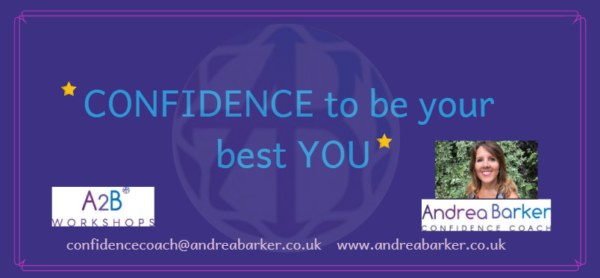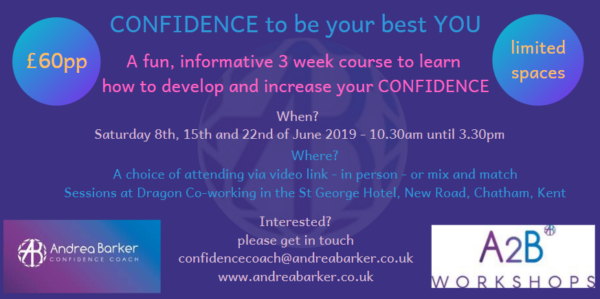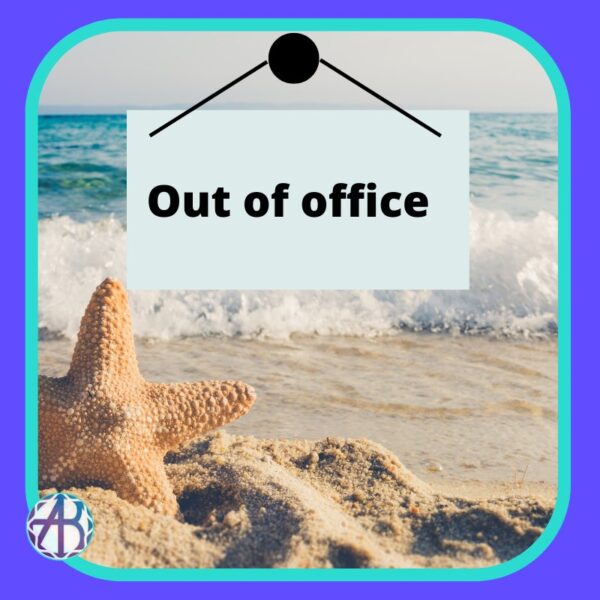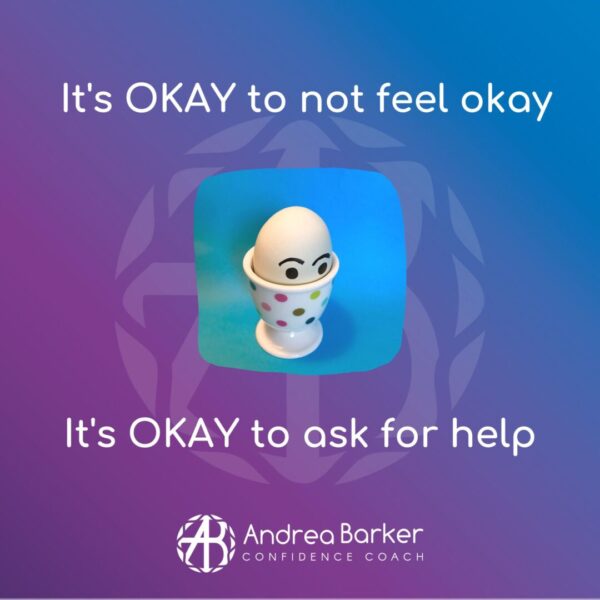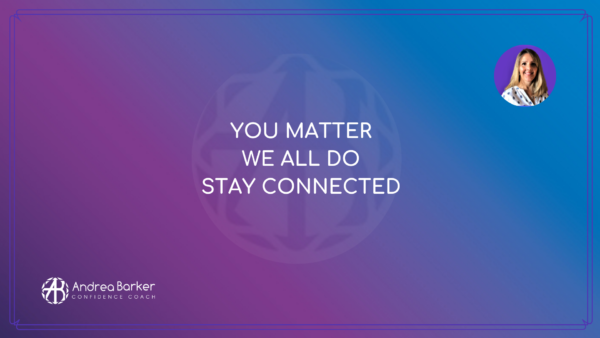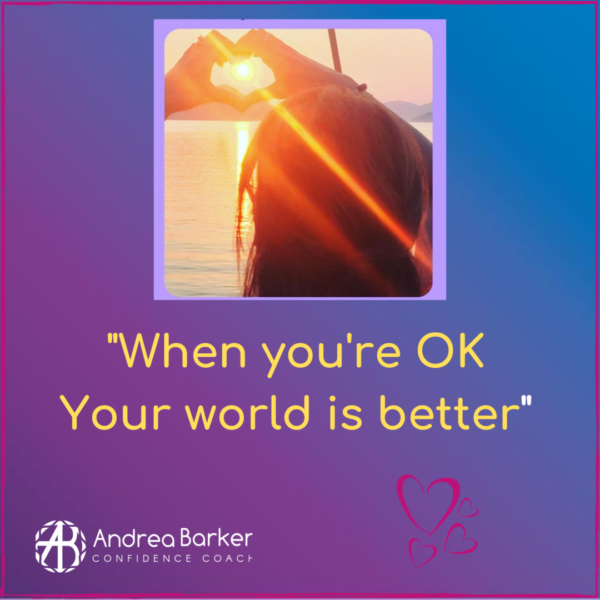Posts Tagged ‘#mentalhealth’
Switching off on Holiday is VITAL to our Health
Many people do not switch off on holiday
With the rise in home working, hybrid working and the ease of technology – many people find they work every day on their holiday or weekends off.
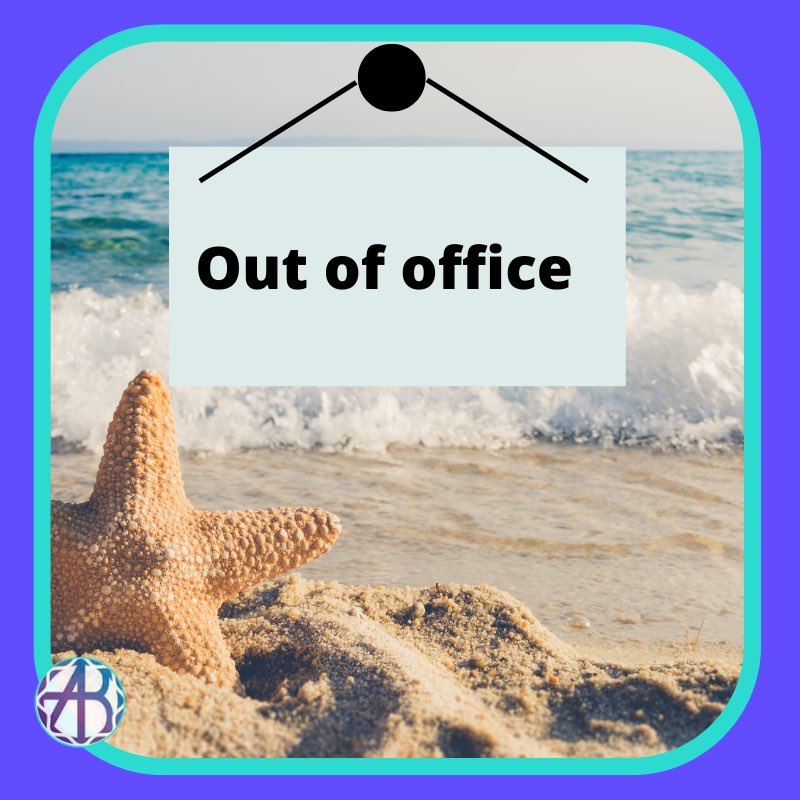
The lines become blurred between work and home life or leisure time
Some workers do have pressure piled on them to perform and be productive, or can risk being missed off the Rota or bonus incentives.
This can cause huge stress and anxiety – leading to Burnout.
Excessive pressure is actually counterproductive as productivity levels actually fall.
Rising stress levels and tiredness leads to loss of concentration – resulting in accidents, which involves monetary costs, loss of hours through sickness or injury and therefore loss in productivity, and risking losing a good reputation.
Mental and Physical Health can be seriously compromised, not to mention what it does to home life and relationships.
Blood pressure can go up, there can be trouble sleeping and tension at home and not being present when you are there.
Strong argument to switch off, however many do not!
So, despite strong arguments for a total detox by switching off – why is it people don’t? Other than the pressures already mentioned, there is also the pressure we put on ourselves.
Sometimes it is FOMO – the Fear Of Missing Out and that maybe things won’t run as well if we are not there!
For some it is the need to provide, to pay the bills and of course this is important and an absolute necessity, but we mostly find – the more we earn the more we spend!
Time is a commodity we cannot get back.
Maybe we are so passionate about our work that we believe we don’t need a break from it – the saying ‘If you love what you do, then you never work a day in your life’ – Great! However, your life generally does not consist of just You, or if it does then where does that leave you, if one day you turn around from your hours of hard work and find you are alone? That may sound profound, however ‘No person is an Island’ and everyone needs balance in their life and times where love and support is needed
Holidays = Priceless & VITAL
Holidays – a total switch off & detox from your normal work routine, regardless of what that ‘holiday’ entails really is priceless
We can have pressures to have super-duper holidays that break the bank – which is not recommended you don’t want your holiday to be cause of more stress and feeling the need to work long hours to pay for it. It can take some careful planning and budgeting, but once you have decided on your holiday – then be fully invested in the precious time off.
Time off makes your happier
Having proper ‘time out’ and ‘switching off’ is something you can’t quantify. Recharging your batteries, connecting with those closest to you, and the things you enjoy doing and having good ‘ole FUN makes you a happier, more connected, balanced, productive person.
Connect and be fully present
Connecting with the people closest to you and being fully present, is something you and they will treasure for all their lives. Children especially value having you around and that you value spending your time with them. When you are always in ‘work mode’ the people around you feel they are not important to you.
Recharge your batteries
Have FUN and rekindle old hobbies or find new ones
Create precious memories
Totally switch your mind off gives you space & helps your find solutions or come up with great ideas
You feel Happier and Healthier
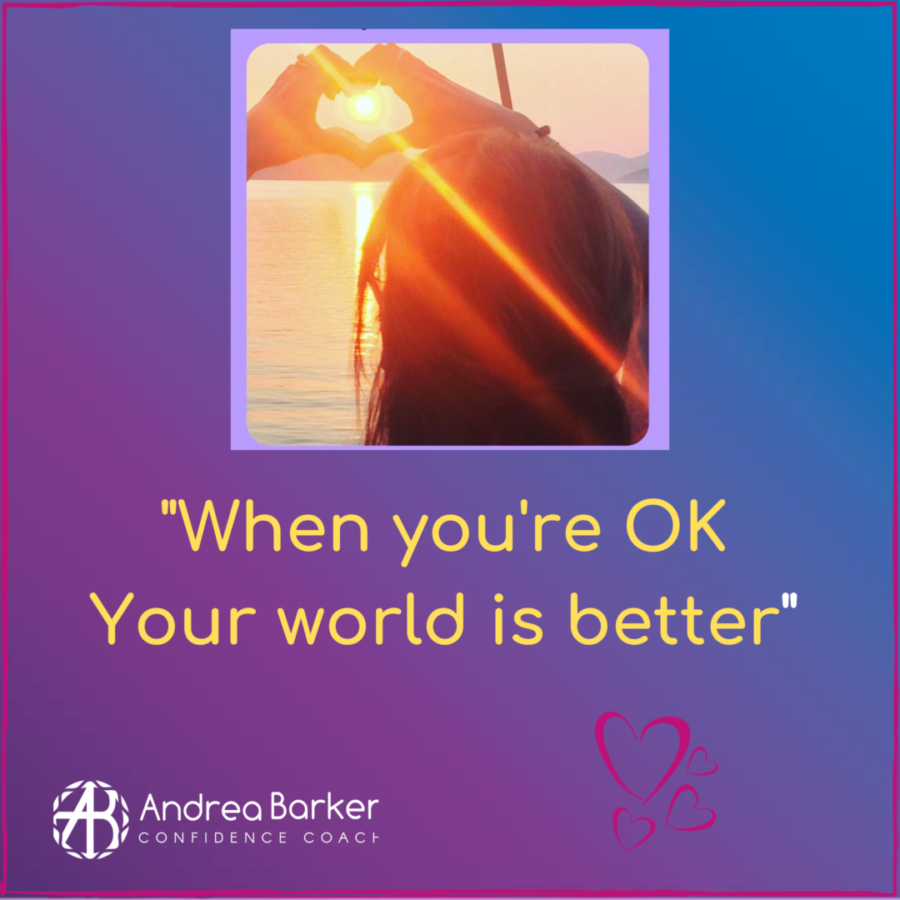
Leave work at work
So, decide how important the things that happen in work are while you are on holiday? What difference could you make from your sun lounger – really?
Plan effectively before you go; delegate tasks, or put them on hold, put trust in your staff (if you have them), let clients know you are ‘out of office’ and look forward to connecting with them when you are back – they absolutely get it.
If you are an employer; showing you respect and value your employees’ time off and their well-being – you get loyal more productive staff. Being valued is number 1 for employees.
Have confidence to set your boundaries and recognise the importance of investing in your health & well-being – you will have the best time and come back refreshed and ready to go.
So, go on – switch that ‘out of office’ on for emails and leave the work phone at home – why not? You have earnt it!
Andrea
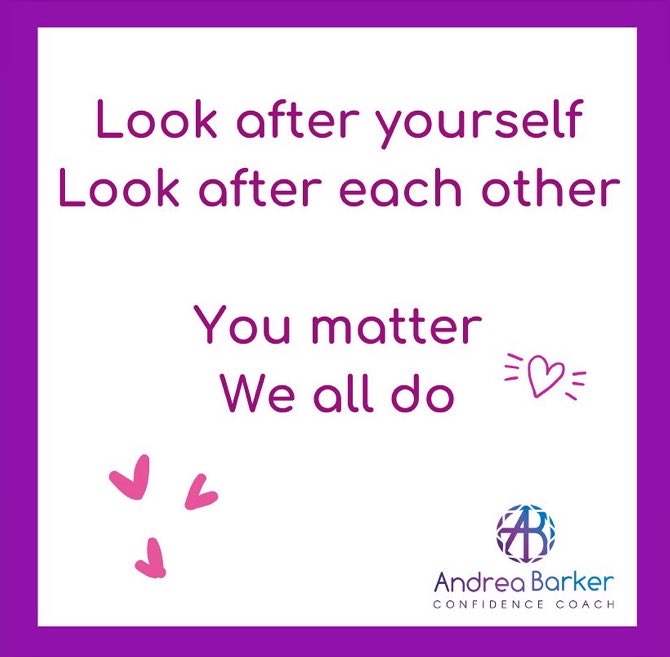
Social Media & Mental Health
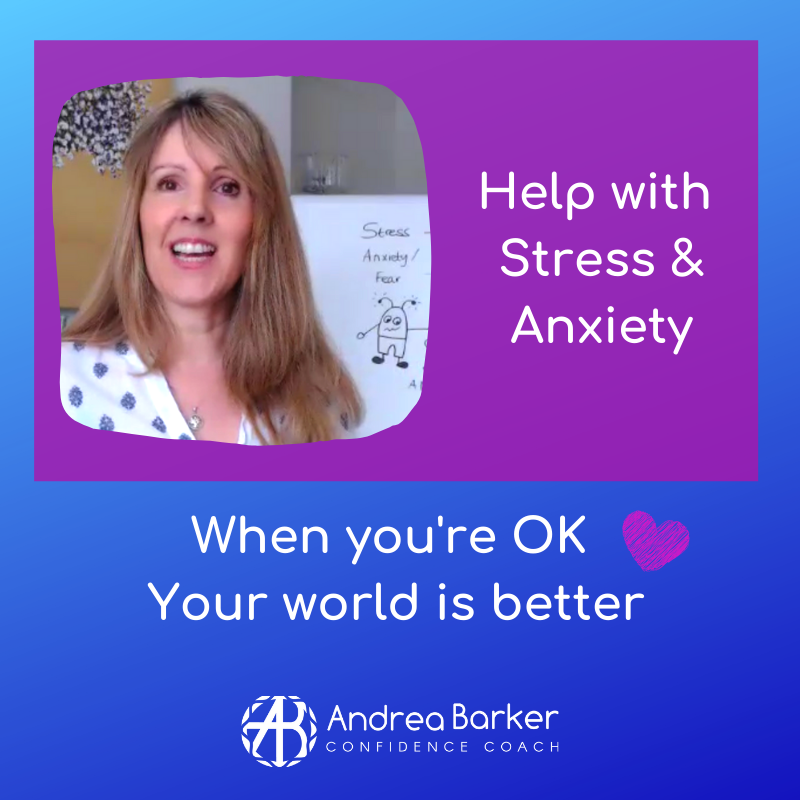
Social Media is so woven into our lives now and can be a great platform for showcasing amazing stories of success, recovery & resilience that gives inspiration and hope to others.
A common theme in many of these great stories, is the support and love of family, friends and work colleagues.
It can be hard to understand, that for some people these great stories are a difficult read.
Not everyone has loving family around them, or supportive friends & colleagues, for a vast array of reasons, to help them when they are struggling with their mental or physical health concerns or to be their personal cheerleaders.
There are many people who are the ‘rock’ in their family/ friend or business life and feel they ‘have to be ok’ and feel they can’t turn to those closest to them and see their struggle as ‘failure’ when compared to others achievements.
Social Media positive & negative

There are many people who are the ‘rock’ in their family/ friend or business life and feel they ‘have to be ok’ and feel they can’t turn to those closest to them and see their struggle as ‘failure’ when compared to others achievements.
Things to do that may help
- Try taking a social media holiday
- Do not compare yourself, your ‘journey’ to that of others – you are not them and they are not you and mostly you’re seeing a snapshot of what that person has been though to get from A to B. We’re all truly individual and our experiences are our own and we experience everything in our own way too.
- Do look at what inspires you though and what you think you could try, that appeals to you.
- Write down at least 3 things about yourself that you are happy about or proud of – it can be anything
- Get out into nature as much as you can
- Take time to breathe and have ‘time out’ in your day – just for you
- Listen to music
- Write down all your thoughts in a piece of paper – then rip it up or shred it – a great way to get those thoughts you don’t want out of your head
- Join a group activity like learning crafts or walking. It can feel so hard to do initially, but you’ll be glad you did.
- And definitely find deep inside you – the courage and confidence to take the first step to getting some support, whether through your GP or the many organisations who offer tips on their websites, text / chat options or people to speak to over the phone or in person
- It is okay to not be okay and to ask for help
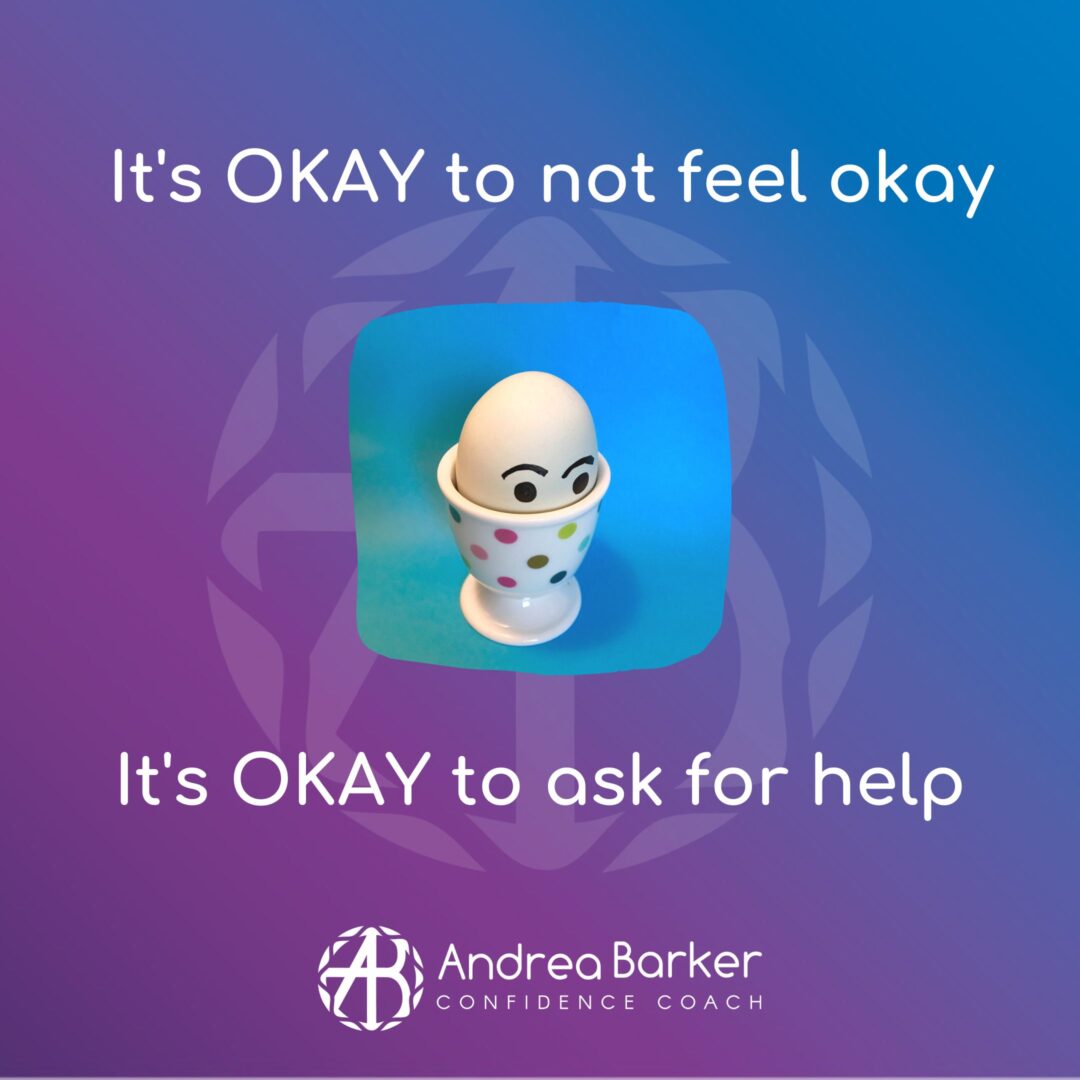
Andrea
Anxiety due to distressing world events
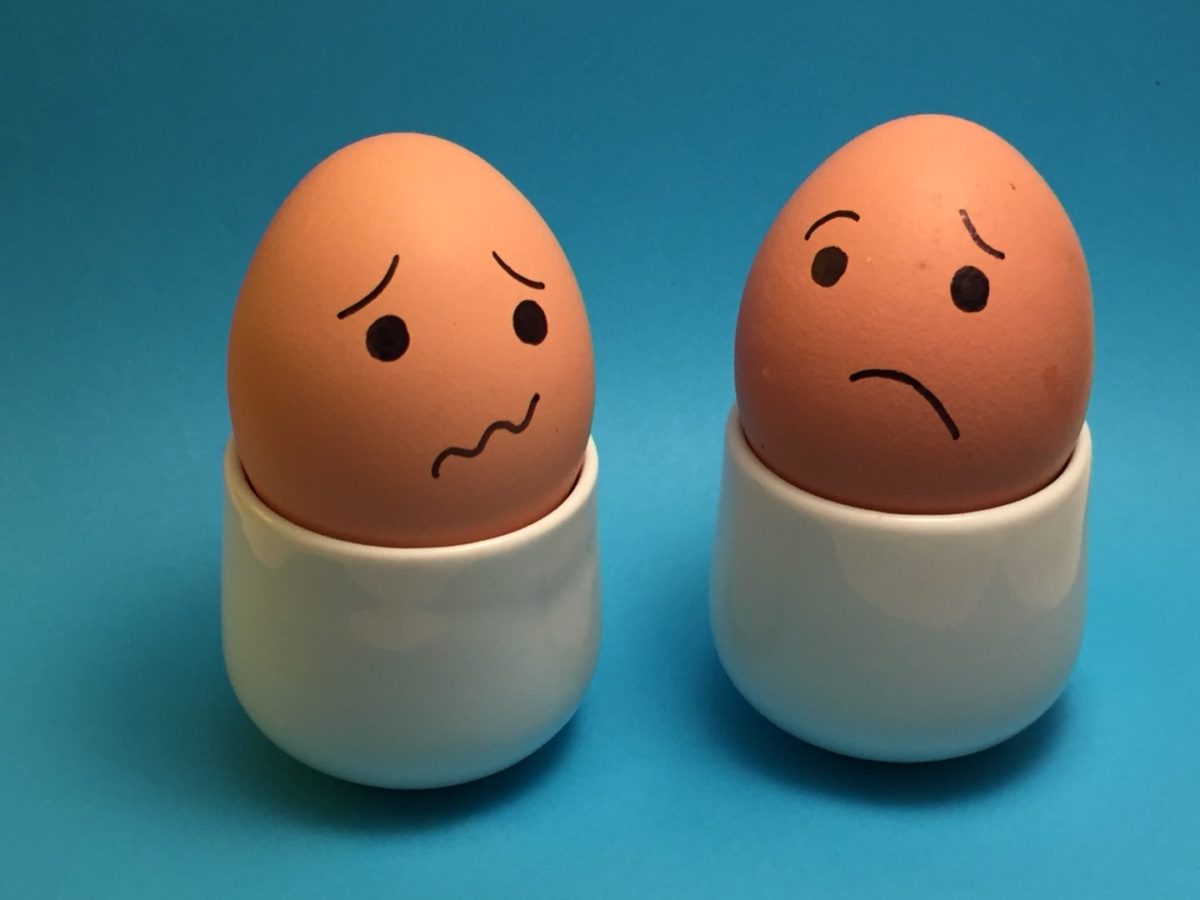
Things you can do to help reduce the anxiety and worry
It’s understandable to feel anxious about the war in Ukraine
It is natural to feel worried, anxious and upset about what is happening , to its people, and the wider impact of the war too.
What is happening to me when I feel anxious?
Feelings of Anxiety & Stress releases hormones called Adrenaline and Dopamine, which prepare us to Fight, Fright (freeze) and Flight (run) – raising our heart rate and breathing, we can get sweaty palms and feel butterflies in out stomach – usually this then settles down, after we have run away for example, or we have realised we don’t need to worry.
We can have a sense of helplessness about the situation
The reason why many people may be feeling quite anxious, is that there is a sense of helplessness about the situation, and seeing people distressed and displaced is upsetting. You may feel like you can’t do anything, so the feeling of anxiety stays with you.
Also, for some adults and children, thoughts can spiral about the situation too, and affect your day-to-day living – like finding it hard to enjoy yourself or feeling guilty if you do.
Some adults and children can also ‘catastrophise’ about the situation and things nearer to home too, which is extreme worry about the absolute worst things happening to people you care about.
Children and adults show worry in different ways
Adults for the most part can voice how they feel, or at least know a bit more about why they feel the way they do and talk to others about the situation – talking is helpful.
For children, the anxiety they feel can come out in different ways, like being extra clingy, having a tummy ache or not wanting to sleep on their own – and if you are worried or anxious, they are feeling it too.
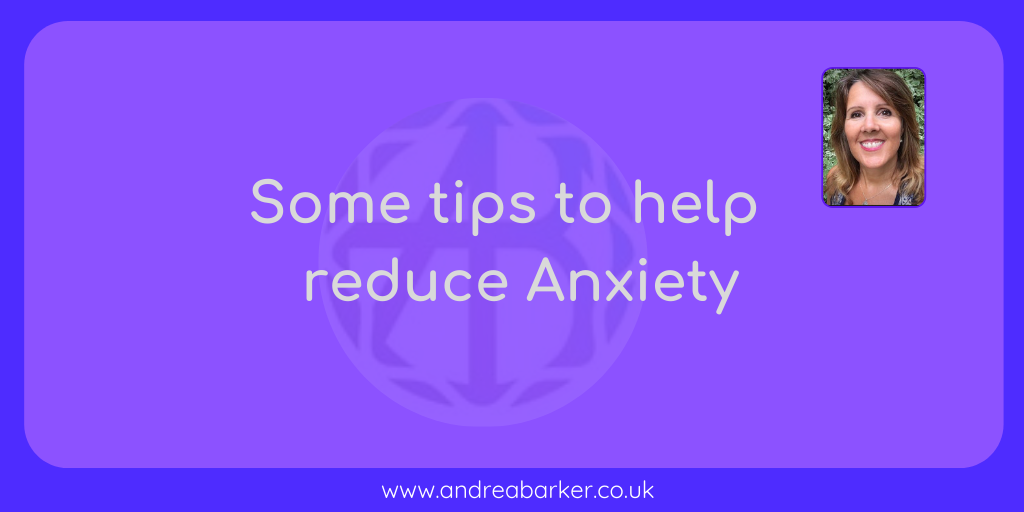
Things that could help:
- It is remembering that the terrible situation that is happening in Ukraine is beyond your control.
- Try to focus on the things you are in control of – like limiting watching the news, to perhaps once a day, and not before bedtime. Also be conscious of getting your news from a credible source.
- Try to shield young children from the news, maybe have it on when they are not around, their young tender minds can find difficult images especially, hard to process. Try not to avoid the subject altogether though, especially if they show signs of worry – as mentioned – reassure them, extra cuddles and a teddy they can tell their worries to and hug. Find out what they have learnt at school, do they know where Ukraine is? It can be helpful for younger children to know that the war is quite far from them.
- For older children do listen to their concerns. Try not to say; ‘everything will be alright’ have a conversation and explain what is happening in as sensitive a way as you can and about your concerns, but also what things you CAN do. You can advise them to limit their online activity. Depending on their age – possibly no internet / phone at bedtime
- Find out what things you CAN do locally to help – from donations of hygiene goods, clothes, and toys, at community centers, school, colleges and churches.
- Could you donate to larger organisations like The Red Cross, UNICEF or Save the Children?
*This can help you – as you are doing something valuable to help victims of the crisis – how ever big or small – it all collectively helps.
- Maybe you are in a position to welcome families or individuals from the Ukraine? Find out what is happening in your area.
Focus on other things that are in your control too, that will help reduce your anxiety levels
- Get out into green spaces and the fresh air
- Exercise
- Try mindfulness and be quiet and just breathe
- Get enough sleep 7- 8 hours
- Eat well and stay hydrated
- CONNECT with others – you don’t need to be alone with how you feel
- Think about what & who you are thankful for
- You can also get extra help, support and ideas from so many wonderful organisations, the BBC have a helpful page on their website, there is Mind, Anxiety UK and many others
Andrea

Your Mental Health and Well-being matters
looking after yourself and others during the continued restrictions
It is hard to believe that nearly a year on and we are still in the midst of the pandemic and restrictions.
Our Mental Health and well-being has certainly been under pressure and it does always seem worse during the colder months – however spring is around the corner, as is the hope of getting back to some form of normality.
Children and parents have been finding it particularly hard, as have those people shielding and living alone, when so many of our social face to face interactions are not possible.

The message is –
- to stay as connected with other people in what ways you can, whether meeting for a socially distanced walk, phone call or video call, and talk about how you feel – or check in on someone else, especially if you know they live alone. If they do not want to talk, just let then know you are there and will check in again with them. Sometimes people do want another person to just listen –
- There are so many wonderful organisations you can talk to or text – reach out, it is so worth sharing your feelings – you are not alone. SHOUT, MIND & YOUNG MINDS, CALM, ANXIETY UK to name a few.
Age UK has a good video to help older people who are not familiar with video calling.
Nature continues regardless…
If you can, do outside into nature, it does have a calming effect and helps you feel a little more grounded, getting natural light is important.Even 10 minutes a day will help – look out for the signs of spring, like snowdrops and daffodil buds or just pause and listen to the birds. You can put some food and water out for the birds and get nature to come to you.
If you are feeling low or have feelings of anxiety that you find hard to talk about,
then why not look at expressing how you feel by reading or writing poetry, how about a story or blog, if you are musical – you could write a song or rap? There have been some particularly funny Lockdown songs and during these times – humour is a saviour.
If you do feel particularly anxious
try writing down all your thoughts on a piece of paper and then rip it up and throw it away.
Maybe draw or paint your feelings and use the colours as expression – you don’t need to be ‘good’ at art, just use the colours in a way that helps you feel good or release pent up feelings.
Put some music on and really feel the music, express yourself through movement – dance like no-one is watching – or dance together whether in person or over a video call and have fun. Movement, like dancing or other forms of exercise are so good for you, and help you feel energised.
Focus on the positives from each day
take each day one day at a time. Take timeout for self-care, like reading a book, going for a walk or having a bath – this helps you cope with what is going on around you
Remember to Breathe… and let go of those things you cannot control and focus on what you CAN do

Valentines in Lockdown?
‘Lockdown Love’ has certainly been a challenge, especially if you do not live with your partner, or are single and looking for love.
So, what can you do for Valentine’s day?
- You could have fun making each other a valentine’s card and a poem to go in it! Or send one to cheer up a friend or someone you admire!
- Write a valentine’s song.
- Send a valentine’s video – with a lovely message or song!
- Dress up for a night out & cook a meal together – or if you live apart both cook the same meal over zoom!
- Maybe support a local restaurant by ordering a valentine’s meal or food hamper.
- Watch a film together and cosy up – again you can watch the same film together while on a video call – just press play at the same time!
- Wrap up warm and go for a country or coastal walk
- Send flowers, an indoor plant or seeds for the garden.
If you are single and looking for love
Are you currently single?
It certainly is a challenge to be able to meet anyone in person, however dating site reports suggest it is a good time to have more meaningful chats with a potential partner, with a little less initial pressure about meeting up.
If you are using dating apps, do take care and make sure you try not to go on them when you feel particularly vulnerable, and do not give out your phone number – use the withhold number option, until you feel safe to.
Only ever arrange to meet someone if you feel safe. That it follows current restriction guidelines, and you tell someone where you are. Do not meet anywhere remote.
For Valentine’s why not buddy up online with another single friend. Watch a romantic film or RomCom – with a warming hot chocolate or a cocktail!
If you can – treat yourself to some lovely food to cook or order in and why not?
- Loneliness can be hard, so remember to connect with friends, or the wonderful organisations out there. Check up on someone you know is alone.
Valentine’s day is just one day!
Stay connected and stay safe
Andrea
AGE UK https://www.ageuk.org.uk/information-advice/work-learning/technology-internet/
Young Minds https://youngminds.org.uk/
Anxiety UK https://www.anxietyuk.org.uk/
Be kind and look after yourself – what does that mean?
How often do you put yourself first?
I have had the pleasure of being on BBC Radio Kent, Pat Marsh’s show, over several weeks now. We have been talking about many things to help your Mental Health and Well-Being.

Today we talked about being kind & and looking after yourself.
Putting yourself first at times matters – it is essential for your well-being to top up your own cup, so you have something to give.
It reduces your stress levels and helps you feel happier, which is better for you and the people around you.
Some people find it hard to put themselves first, worrying that it is a selfish thing to do; which can result on taking on too much, feeling overwhelmed, tired and stressed.
So, how can you look after yourself?
There are several things you can do as listed below, to look after your Mind Body and Soul
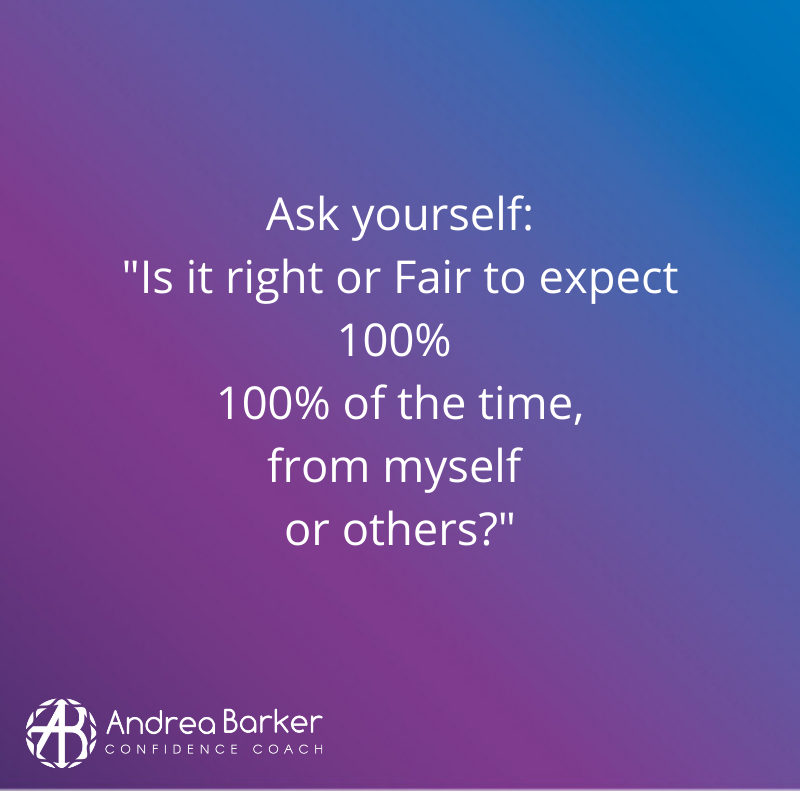
- Start by taking the pressure off yourself to be ‘perfect’ or things to be done ‘perfectly’ and to be 100% all of the time. A great question to ask yourself; “Is it fair to expect 100% – 100% of the time?”
- A rule I like to live by is 80 / 20. 80% of the time do what you know you should – 20% of the time do what you like doing. This creates a great balance and avoids you trying to cut things out altogether which can be a hard thing to do – just adding to pressure or stress.

- Eat a wide variety of wholesome foods that nourish and sustain your body and mind. Good nutrition helps to keep your body healthy and more able to fight off disease. When you feel healthly you can do more things well, which helps you feel happier.
- Keep Hydrated Keeping yourself hydrated helps you think more clearly, and your body functions so much better when well hydrated.
- Exercise is good for your Mind Body and Soul – it keeps you flexible and fit, reduces stress, gives you headspace and much needed ‘time out’ and reduces the risk of disease. When are body and mind are healthy we feel so good from the inside out and life flows better.
Other important things are;
- Get plenty of sleep. The benefits of a good sleep can not be underestimated – our mind filters and files our day, our body repairs and children grow. I’m an advocate of the power nap – a great way to top up on sleep.
- Play and have FUN do what you love doing, have fun and laughs – it is so good for your mental well-being. Doing things you enjoy is so important. When was the last time you factored some FUN into your life as a priority?

- Looking after your spiritual health is an important part of over health and well-being – whether it is meditation, religion and prayer, the outcome can be an inner sense of peace.
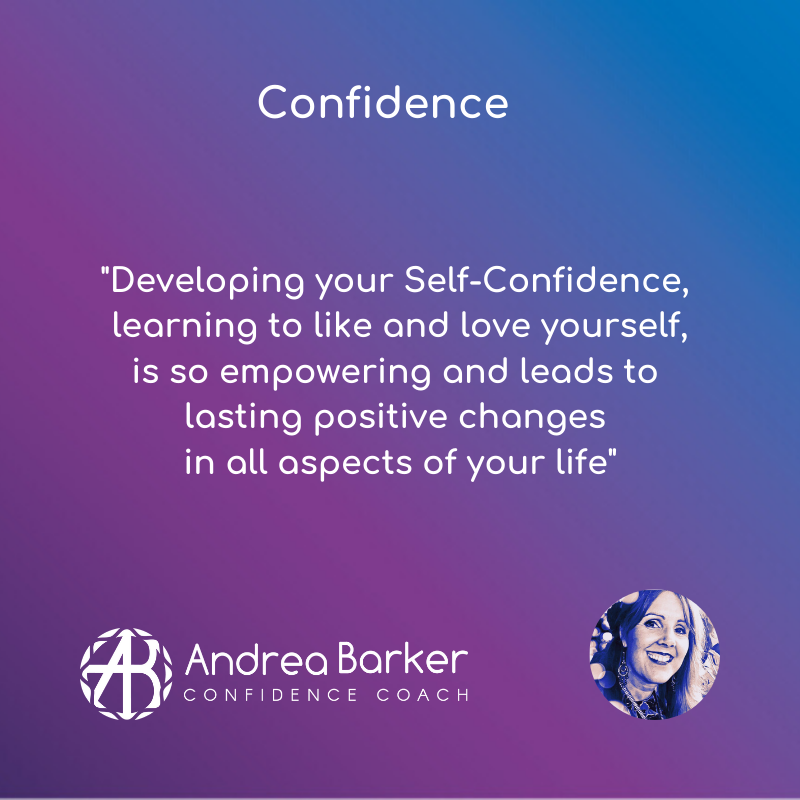
- Developing Confidence in yourself learning to say YES to what you want to do, and NO to what you don’t want to do, or maybe don’t have the time to do.
- Many people find that little word NO a difficult word to say – so, try buying your self some time to decide what you want to do by saying something like, “Let me see if I have the time to do what you ask, to make sure I can do the best job for you”
- Learn something new learning a new skill not only expands your mind and feeds your interest, giving you a wonderful sense of achievement. As a result of doing something new – it can open up opportunities for new experiences, or friendships.
- BE YOURSELF – You are the only you there is. Embrace who you are. Get to know yourself and appreciate your achievements and skills. This will help you feel so much happier and confident.
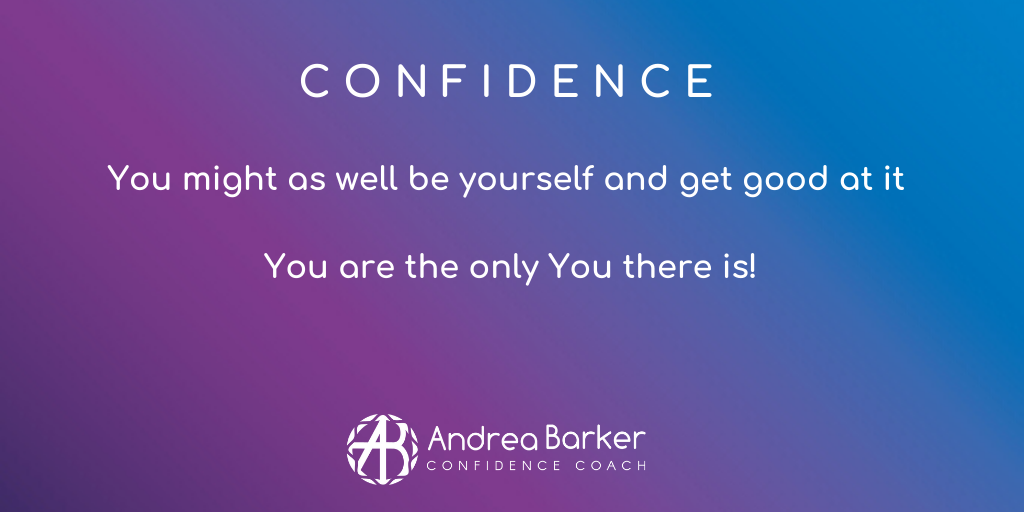
There is so much more I could add!
TAKE CARE OF YOU – YOU MATTER
Andrea
Developing your Self-Confidence is so empowering – I know!
Self-Confidence is trusting in yourself, your abilities and knowing your potential. Self-Esteem is about liking and loving who you are so you can be the best version of YOU ✨
Sometimes I used to worry all the time what people thought about me, and getting things wrong, making mistakes and being a failure.
I strived constantly to do my best to fit in and be someone I wasn’t, to try and be liked and accepted. Often I was a ‘people pleaser’ trying hard to always do my best for others, being flexible, adaptable, not saying NO and taking on too much, and was constantly feeling like I was letting people down, as I was struggling to cope with all I’d given myself to do. I felt quite unhappy a lot of the time.
I always felt I should be ‘strong’ and rarely asked for help.
Things got worse after I suffered a head injury and my Confidence was on the floor, and I liked myself less.
After a long slow recovery, and working on my own Self-Confience and Self-Esteem and finding myself again, I know the amazing benefits, which is why I do what I do, and why I know that if you’re ready to make some changes, I can help you.
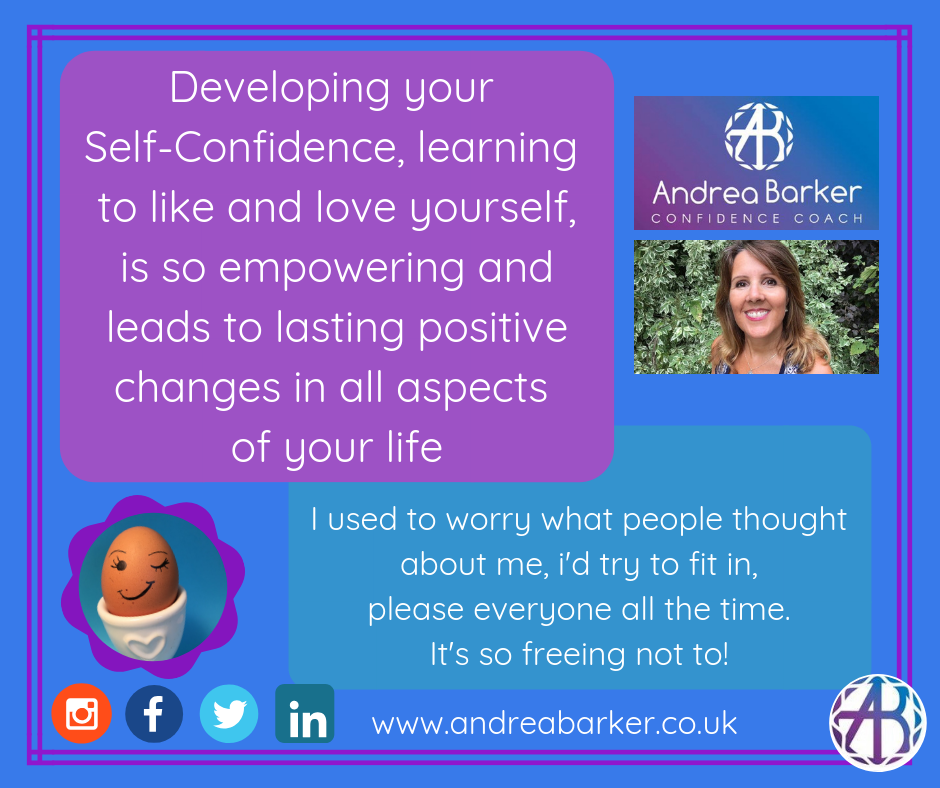
Taking a first small step on working on feeling happier about being YOU, leads to another step and another ✨
You deserve to be happy and feeling confident to be your best – when you do, You and everybody around you benefits 😊✨
Andrea
We all have Mental Health – understanding Mental Health issues is not always easy, we all need support
Mental Health has been a subject well promoted in recent years to create awareness, and for good reason.
After all we all have Mental Health, which impacts every aspect of who we are, the decisions we make and how we cope day to day with the people in our life and circumstances around us and includes our Self- Esteem levels; how we feel and think about ourselves and how Confident we are in our abilities and skills.
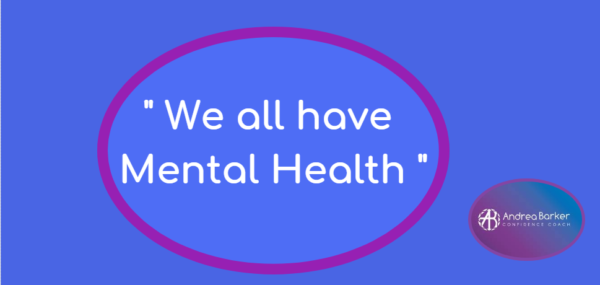
Maintaining a healthy Mental Health is essential and priceless, it is different for each one of us. It could be things like; being in nature, doing regular exercise, appreciating music, getting immersed in the arts, and spending time with treasured family, friends and pets – I call it ‘Soul Food’
There are times, for many reasons, when Mental Health could be compromised. No one person is beyond a Mental Health concern, issue, disorder or illness. 1 in 4 people at any one time – from all walks of life. It will always be unique to the sufferer, how it affects them and the people around them. Examples are; Stress, Anxiety, Depression, or Phobias, PTSD (Post Traumatic Stress Disorder), Neurosis, Addiction, and various other psychological / psychiatric disorders. So, understanding Mental Health is only a good thing, of course, to understand ourselves better, to help people help themselves and to support each other if we can – should our Mental Health falter.
Talking about how we feel if experiencing a Mental Health concern or having someone around who is, like a loved one or work colleague, is important, to start the process of getting valuable help and support, and getting on the road to recovery or learning how to manage the issue and realising we are not on our own.
Making that first step towards seeking help when you are struggling with your own Mental Health or that of someone around you, can take a lot of confidence and courage, but you will be glad you did – there is real strength in it, in no way is it a weakness.
There are many incredible people out there doing their best to cope with and help others, and there is also much support from great organisations, health professionals and therapists, helping us to understand ourselves and others, and what we, or they could be going through. It can sometimes be difficult finding the right support and help initially to suit you – don’t give up though, it is out there, and you can build a good support network for yourself, your family and in the workplace.
Sadly, I’ve seen a few posts recently dissing people around not supporting or understanding Mental Health concerns in others. To my mind we need to all be a bit more supportive of each other and I feel there are a few factors to consider before judging others, which prompted this article.
For most people it isn’t that they don’t care about people who may be having a tough time with their Mental Health, it’s more than likely that they don’t understand, as understanding Mental Health issues is not always easy, and people don’t always know what the right thing is to do and can fear saying or doing the wrong thing.
Some Mental Health issues are actually very complex, don’t make sense and don’t seem ‘logical’ and are difficult to understand. They are also completely unique to the person with the issue / concern or disorder, though there can be certain commonalities.
Sometimes the person affected can cease to ‘see’ the people around them and the impact their current state has on others, which can be hard to deal with and difficult for the people around them to make sense of. It can be upsetting to be around distressing behaviour that you don’t understand and not knowing what to do to help. Many people will try in the best way they know how – without always getting positive results from the person they want to help (for many reasons) and can be left feeling frustrated, hurt, upset, bewildered, and stressed themselves.
There can also be occasions when a person experiencing an issue will hide it, or deny there is a problem, especially from those closest to them, which of course means it is difficult to support them. This could be to protect others, or maybe through fear of losing their job, the possible risk of stigma, being misunderstood or bullied (thankfully things are starting to change for the better on that score).
Some people do fear and are wary Mental Health issues; maybe they have ‘been there’ themselves or had experience of a family member or close friend in their past and it’s too painful to revisit, and they just can’t cope with someone else’s challenging upsetting behaviour at that time.
We can have the most wonderful events, things to strive for and work towards which needs our energy and attention, or our own genuine concerns and stresses to deal with, like having a physical illness, our own Mental Health issues or times when we’re facing something challenging, getting used to a change and dealing with something new, or are feeling hurt, dealing with a tragedy or loss, that is the focus at that time, or just being incredible busy with work and family life.
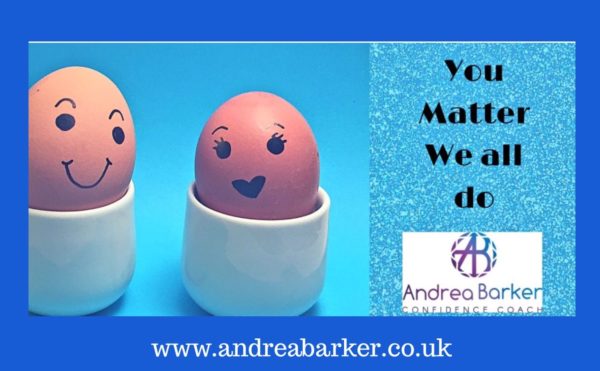
Life happens and can take over for all of us!
Sometimes people want or need to get on with their own lives, for their own reasons, we can all identify with that. It’s not selfish to and it’s not because they don’t care, but everyone needs times when they put themselves first, to be at their best, to be ok for their own well-being and also to be ok enough to cope with issues and challenges facing them or a person close to them, or to just get on with their jobs and family life. Maybe they are deciding to take the time to enjoy life, the people around them, celebrate achievements and how far they have come -challenges they may have overcome themselves – which is important.
Most people are kind and supportive and doing their very best, however no one is ‘perfect’ and everyone is capable of getting things wrong, making judgments, and hurting people – without the intention to, or maybe just don’t know what to do, so do nothing.
We all have times where we have felt we can’t cope ourselves, let alone with another person too and don’t want to – it isn’t wrong, just human.
A good thing to remember is; regardless of what is going on for you or others ‘You are doing the best you can in every moment, with what you know at the time, and so is everybody else – until you find a better way’
Most Mental Health issues can be overcome or learnt to be managed in a better way. There is definitely hope.
Life’s wonderful experiences and challenges teach us every step of the way – if we choose to and are ready to learn from them and being or feeling ready to face some challenges is key.
Every one of us walks our own path, at our own pace, with its highs and the lows.
Try your best to be kind to yourself and everyone around you
If you’ve read this far – thank You and I’d love to have your thoughts
Andrea
Confidence to be your best You
